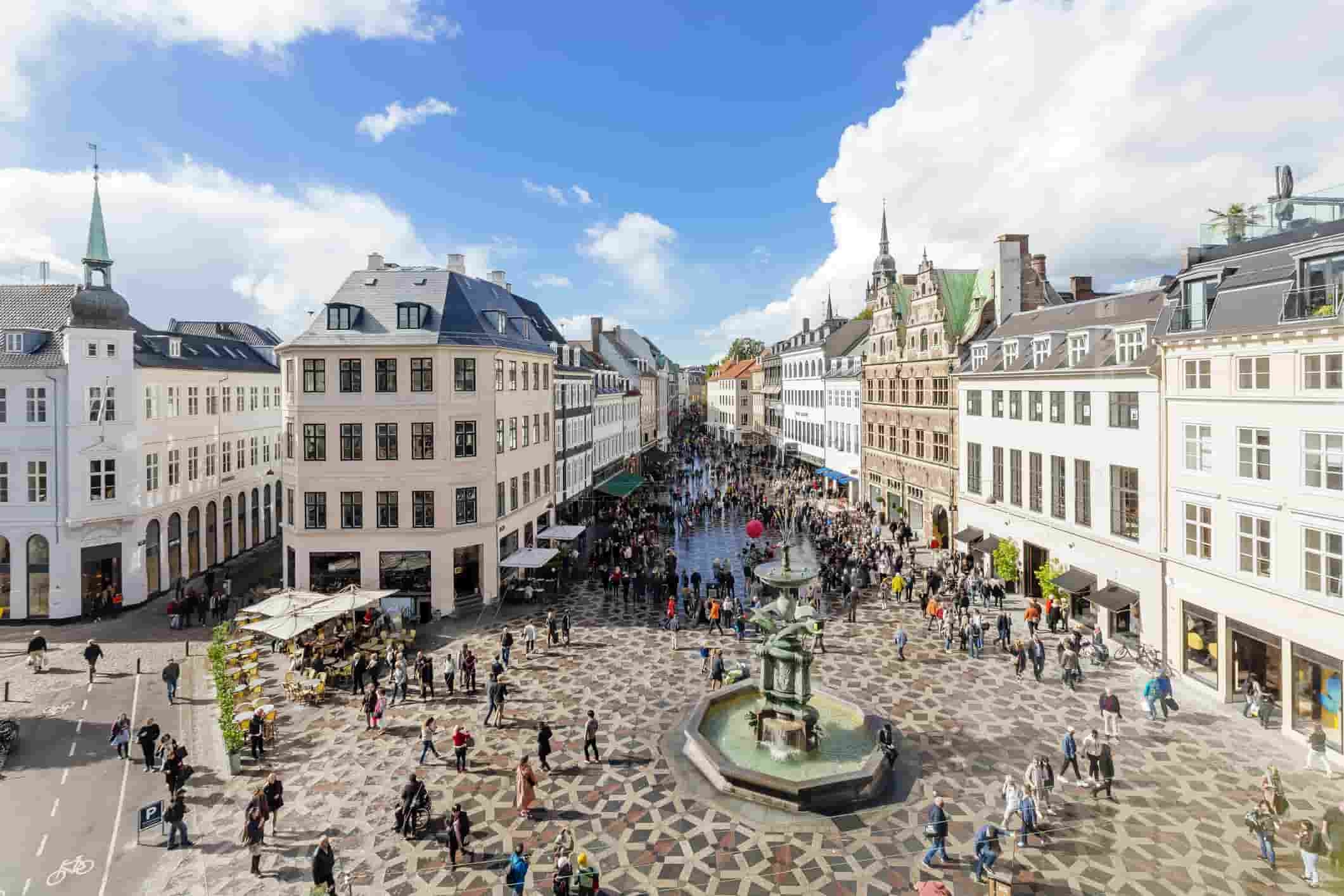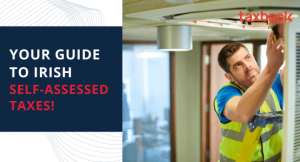Moving to Denmark to live and work? Claim your Tax Refund

So, you want to move to Denmark?
Here you will find the ideal balance between work, family and social life. Whether it’s the fee-free education or the comprehensive healthcare system, many people from all over the world choose to immigrate to Denmark.
According to statista.com, around 70,000 people move to the country each year (before COVID-19). And this is not a surprise.
Denmark is consistently ranked as one of the countries with the happiest nations on Earth, often coming second only to Finland.
Тhe Scandinavian country does a really nice job in taking care of newly arrived internationals, and its capital city, Copenhagen ranks in the top positions in the well-being ranking of major global cities.
In this guide, we will outline everything you need to know if you are planning to live and work here.
Moving to Denmark
Because of the high standard of living and numerous opportunities for personal growth, many expats are moving there from other countries.
If you are from the EU, or EEA area (The European Economic Area), you have the right to study, live and work in Denmark.
To stay longer than three months, you will need a job offer and to apply for a residence certificate within 90 days of arriving. It will give you the right to live in the country.
You can obtain a residence certificate by a number of means, such as full-time research, self-employment, or even by proving you have enough funds to support yourself.
In Denmark, citizens from the Nordic countries (Iceland, Norway, Sweden and Finland) are free to live and work.
If you are from outside the EU, it could be difficult to get a permanent residency. First of all, you will need a work permit.
To get one, you must have prior experience in a trade in the country that is experiencing a labour shortage or be offered a job with a high salary, and each case is assessed individually.
For the most up-to-date visa requirements, you will need to contact the Danish embassy.
Non-European citizens can also stay in Denmark if they study full-time in a higher educational institution, or if they get internships, religious worker permits, au pair permits, and the asylum program.
The Working Holiday Scheme gives the opportunity to young people from Australia, Argentina, Chile, Canada, Japan, New Zealand, and South Korea to work and live in Denmark for up to a year, despite being temporarily suspended due to the coronavirus pandemic.
If you are coming from Australia, you will need a visa for a long-term stay. On the other hand, the Danish government has a number of policies in place to make it easier for expats to settle in the country.
The Pay Limit Scheme, for instance, enables expats with an annual salary of at least 400,000kr to enter the country and stay.
The easiest way for Americans to move there is as an employee, a student or as a spouse of a Dane.

Education in Denmark
Because of its low study costs, high-quality English-taught Master's degrees, and creative teaching methods, it is one of Europe's most popular destinations for international students.
All Bachelor's and Master's students from the EU/EEA and Switzerland, as well as students participating in an exchange program, are entitled to free higher education in Denmark.
Students from the EU/EEA or Switzerland who wish to study in Denmark must first secure a position at a Danish university.
Student visas can be applied for by students from outside the EU. This visa is simple to obtain and requires only proof of ID and a letter of acceptance from a Danish university. A student visa is valid for the entire academic year.
When you arrive, register with your local municipality as soon as possible to obtain your yellow health insurance card.
You can always seek help from the HR department of the company you're moving for or even your national embassies.
Weather
The weather is mild, due to its location in the middle of several seas, with western winds blowing warm air.
Day and night temperatures do not differ significantly, so if you plan to visit this Nordic country, you won't need to pack separate outfits for day and night.
The temperature during the coldest month February is around 34 degrees Fahrenheit (zero degrees Celsius), and in the warmest month, July, it is 64 degrees Fahrenheit (17 degrees Celsius).
You need to be mindful of the changes in wind direction, as it can significantly change the weather during any season.
You can expect a rain shower all through the year. September through November is the wettest season. So, be sure to pack your umbrella.

Language
Danish is the official language of Denmark and is similar to Swedish and Norwegian. However, if the Greenland and Faeroe Islands are included, there are several other languages spoken.
Danish children are taught English from an early age, and 86% of Danes speak English as a second language. That’s why it is simple for foreigners to settle here.
Regardless, it would be very helpful to learn Danish, especially for your work.
You can eventually upgrade your temporary visa to a more permanent one, or even Danish citizenship (after 9 years), but you must first pass a citizenship and language test.
Money and lifestyle
Denmark is an expensive place to live, but it is on par with the rest of the Nordic and Western European countries.
For example, a 1-bedroom apartment in a city centre usually costs 7,000DKK (€938) per month, while outside of the city costs around 6,000DKK (€804).
According to wise.com, utilities can cost up to 1500KR, or €130, on utilities.
Living and working in Denmark
The tech scene attracts a lot of expats, so you'll have a better chance of landing a job as a non-native speaker, as tech talent.
If you want to get a government job, you will need Danish fluency.
Renting can be difficult due to a housing shortage in the country's largest cities.
To begin, most properties will require you to have a CPR number, which comes with your residence permit. As leases are typically for a year, be prepared to be required to pay a deposit equal to a couple of months' rent.

Taxes in Denmark and how to get a tax refund
When you live here, you are subject to taxation and you are required to file a tax return. This is the law.
For a quick estimate of your potential tax refund, you can use our handy Denmark income tax calculator!
Almost all young people and adults pay taxes in Denmark, regardless of whether they work, are students or are unemployed. Everyone receives letters from the Danish tax authorities – Skattestyrelsen – twice a year.
Did you know that anyone who works here pays over 40% tax on their earnings?
The good news is that, if you worked here, you’ve most probably overpaid taxes and you can claim a tax refund in Denmark! That’s your money, so don’t leave it.
You could be due a tax refund in Denmark if:
-
you were on a limited-term contract
-
you paid for accommodation and food
-
while working in Denmark, you kept your residence in your own country

Who can help me claim my Danish tax refund?
The Danish tax system has many rules and laws, and while you do not need to know them all, you will inevitably need to know something about the tax system. Or maybe not?
If you don’t want to deal with complex tax documentation and if you are not sure how to claim your maximum tax refund from Denmark, you can turn to tax experts, like Taxback with more than 20 years of experience.
Why choose Taxback for your tax refund?
Here's why:
-
Our team will ensure you avail of every expense and relief you're entitled to
-
We'll transfer your maximum legal Danish tax refund straight to your bank account anywhere in the world
-
It's a convenient online service. We do the work. You get the cash!
-
Got tax refund questions? Our Live Chat team are on hand 24/7 to answer you
The average Danish tax refund with Taxback is €1,200, so it’s definitely worth applying for yours!




